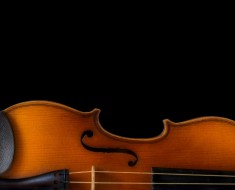Robert Simpson, author, musicologist and composer, died nine years ago this month. I heard him give an introductory talk for a London Concert in the 1980’s, a precise, friendly, quietly but firmly spoken man, enthused about the music of Sibelius and Nielson. People say that his advocacy was partly responsible in the U.K for the revival of interest in Anton Bruckner. He was employed by the BBC for thirty years, until he resigned in 1980 in protest over their programming policy for the Henry Wood Promenade Concerts at that time.
He produced a steady stream of quartets and symphonies over the years, few of which were heard in regular performance, but some of the fifteen quartets and all of the eleven symphonies were recorded by the enterprising Hyperion Company. There is a Robert Simpson Society and their commitment has helped to honour his work and to keep him in the public mind. All of his symphonies have just been reissued as a complete set.
Eschewing atonal music, Simpson wrote in traditional classical mode, his orchestration rich in colour, but his musical argument intellectual and demanding.
I still have a CD of his ninth symphony played by the Bournemouth Orchestra conducted by that champion of British music, Vernon Handley. The symphony lasts for 50 minutes and, unusually, is in one movement although there is a structure corresponding to the normal movements of a symphony.
I have been listening to it again and trying to give it the concentration it deserves. It’s a tough but rewarding work and I am wondering whether to invest in the whole set of his symphonies. Writing about this one, one reviewer says that Simpson doesn’t stand ‘ at any fixed pole of today’s music, but rather at a kind of magnetic north, free from attempts of musical cartographers to pin down his position, spiritually allied to composers of any age and style who have penetrated to the essence of music’s motion in time.
’
…Which is a bit flowery but I think I know what the writer means, for this is a composer firmly in the mainstream of the classical tradition, but of his time and as himself.
George Lloyd, a very different composer, next time.
B.R.



